- Drafted by Ms. Anugya Srivastava & Edited by Mr. Subhash Chandra Vashishth
Health insurance is the means to cover your medical expenses if you are at risk or injured. A comprehensive medical insurance covers the cost of hospitalisation, day-care procedures, medical care at home (domiciliary hospitalisation), and ambulance charges, amongst others. A health insurance plan helps you stay covered against various diseases. Additionally, it enables you to boost tax savings. Under section 80D of the Income Tax Act, 1961, one can claim tax benefits against their health insurance premium. Everyone can apply for insurance. So what is there for the disabled when it comes to insurance?
HDFC Insurance’s explanation below will give us a better
idea about the deep routed phenomenon of discrimination being faced by persons
with disabilities particularly those with congenital disabilities (those who were
born with it):
“Depending on whether the disability that a person is
suffering from is congenital (i.e. by birth) or accidental, various health
insurance providers offer healthcare coverage scopes. Generally speaking, if
the disability is congenital i.e. in the event of a person being disabled from
birth, the insurance providers do not offer any healthcare coverage. This means
that persons who are suffering from congenital disabilities are not eligible
for healthcare coverage in the general sense of the word. However, persons who
have become disabled on account of an accidental occurrence are treated as
regular customers when it comes to purchasing a health insurance plan.
Therefore, such persons who were not born with a disability but became disabled
due to any accidental occurrence are equally eligible for healthcare coverage
as is provided by the various insurance providers. There is a clear set of
medical tests and documentation at the time of policy purchase, which must be
duly followed and all the details pertaining to the disability must be divulged.”
What
the Law says on Health Insurance for Persons with Disabilities
Article 25 of the United Nations Convention
for Rights of Persons with Disabilities (UNCRPD), which India ratified in 2007,
states as under:
“(e) Prohibit discrimination against persons with disabilities in the
provision of health insurance, and life insurance where such insurance is
permitted by national law, which shall be provided in a fair and reasonable manner”
Sections 3, 25 and 26 of the Rights of Persons
with Disabilities Act (RPWD), 2016, have made it clear that a person with a
disability cannot be discriminated against when accessing healthcare and its
other aspects. According to Section 26 of the Act, “The appropriate Government shall, by notification, make insurance
schemes for their employees with disabilities”.
Health Insurance Schemes of Union Government, State Governments and Private Companies
Keeping in view the above provisions of the
UNCRPD and RPWD Act, let us take a look at the health insurance Schemes of the Government:
Central Government:
A. Ayushman
Bharat Pradhan Mantri Jan Arogya Yojana: Ayushman
Bharat PM-JAY is the largest health insurance scheme in the world, which aims
at providing health cover of Rs. 5 lakhs per family per year for secondary and
tertiary care hospitalisation to approximately 50 crore beneficiaries which
make up the bottom 40% of the Indian population. The households included were
based on the deprivation and occupational criteria of the Socio-Economic Caste
Census 2011 (SECC 2011) for rural and urban areas, respectively. It subsumed
the Rashtriya Swasthya Bima Yojana (RSBY), launched in 2008.
The eligibility criteria of this scheme for the beneficiaries are
divided into two categories: rural and urban:
a. For the rural beneficiaries, PM-JAY covers all such families who fall
into at least one of the following deprivation criteria (D1 to D5 and D7) and
automatic inclusion (living on alms, manual scavenger households, tribal group,
legally released bonded labour) criteria:
● D1- Only
one room with kucha walls and kucha roof
● D2- No
adult member between ages 16 to 59
● D3-
Households with no adult male member between ages 16 to 59
● D4-
Disabled member and no non-disabled adult member
● D5- SC/ST
households
● D7-
Landless households deriving a significant part of their income from manual
casual labour
b. For the urban beneficiaries, the workers who belong to the following 11
occupational categories are eligible for the scheme:
● Ragpicker
● Beggar
● Domestic
worker
● Street
vendor/ Cobbler/hawker / other service provider working on streets
● Construction
worker/ Plumber/ Mason/ Labour/ Painter/ Welder/ Security guard/ Coolie and
other head-load worker
● Sweeper/
Sanitation worker/ Mali
● Home-based
worker/ Artisan/ Handicrafts worker/ Tailor
● Transport
worker/ Driver/ Conductor/ Helper to drivers and conductors/ Cart puller/
Rickshaw puller
● Shop
worker/ Assistant/ Peon in small establishment/ Helper/Delivery assistant /
Attendant/ Waiter
● Electrician/
Mechanic/ Assembler/ Repair worker
● Washer-man/Chowkidar
Ayushman Bharat', has 17 packages for mental health disorders, which also includes psychoactive substance use and covers ECT (Electroconvulsive therapy), rTMS (Repetitive Transcranial Magnetic Stimulation), MRIs (Magnetic Resonance Imaging) and most of the blood tests. But Ayushman Bharat, does not cover HIV as of today, though there are discussions to include this condition. The main limitation of this scheme is that despite its goal of providing health insurance to the poor and vulnerable beneficiaries, the eligibility criteria for the urban beneficiaries exclude disabled professionals who are from vulnerable families living in urban areas.
B. Niramaya Health Insurance Scheme
This Health Insurance Scheme' by the National Trust covers conditions arising from disabilities, mental retardation, cerebral palsy, autism, and multiple disabilities. The scheme envisages delivering comprehensive cover, which will have a single premium across the age band covering people with disabilities with up to ₹1 lakh for medical treatments under the National Trust Act on a reimbursement basis. It does not require pre-insurance tests, but individuals must enroll with the National Trust and have a valid disability certificate to avail of this policy. Treatment can be taken from any hospital.
C. Swavalamban Health Insurance
Swavalamban has been designed to deliver comprehensive cover to the beneficiary as well as his family (PwD, Spouse & up to two children), has a single premium across age bands and can be availed by PwDs aged between 18 years and 65 years with a family annual income of less than ₹ 3,00,000 per annum. In order to enable and empower persons with disabilities (PwDs) to live as independently and with dignity as possible, health services and its access to persons with disabilities assume a very significant role. The objectives of the scheme are:
- To provide affordable Health Insurance to persons with Blindness, Low vision, Leprosy-cured, Hearing impairment, Locomotor Disability, Intellectual Disability and Mental Illness.
- To improve the general health condition & quality of life of persons with disabilities.
D. Employees’ State Insurance Scheme.
Primarily designed to help factory workers handle the expenses following accidents and occupational hazards, the Employees' State Insurance Scheme is available for the workers employed in various factories in India. Under Disablement benefits, the employers’ share of contribution in respect of such disabled employees is paid by the Central Government for initial three years. Permanently disabled persons working in factories and establishments covered under ESI Act and drawing wages up to ₹25,000/- per month are covered under the scheme.
State Governments
Although there is no specific scheme which gives health insurance or
assistance to persons with disabilities, these are some of the following
scheme(s) that give financial assistance to those people who are
either injured or battling an illness/disease:
A. Delhi Arogya Kosh:
Delhi Arogya Kosh (DAK) is a scheme which provides financial assistance to the extent of Rs. 5 lakhs to needy eligible patients for treatment of any illness/disease in a Government Hospital and for any illness/treatment/intervention required by the patient undergoing treatment in a Government Hospital run by Delhi Government/Central Government/Local Bodies/Autonomous Hospital under State Government.
Eligibility Criteria
●
Patients with annual family
income up to Rs 3 lacs are eligible.
● The patient should be a bona
fide resident of Delhi for the last three years (prior to the date of
submission of the application)
● The patient requiring
treatment for any illness/ treatment/ intervention in a Government Hospital run
by Delhi Govt. /Central Govt. /AIIMS /Autonomous Institutes of the State Govt.
/Local Bodies.
B. Comprehensive Health Insurance Scheme (Tamil Nadu)
This Tamil Nadu Scheme provides quality health care to the eligible person through and empanelled government and private hospitals and to reduce the financial hardship to the enrolled families and move towards universal health coverage by effectively linking with public health system. The scheme seeks to provide cashless hospitalization specific ailments/procedures the scheme provides coverage upto ₹5,00,000/- per family, per year on a floater basis for the ailments and procedures covered under the scheme.
C. Mahatma Jyotirao Phule Jan Arogya Yojana (MJPJAY) (Maharashtra)
This flagship health insurance scheme of Maharashtra Govt. provides end to end cashless services for identified diseases through a network of service providers from Government and Private sector. Earlier was known as Rajiv Gandhi Jeevandayee Arogya Yojana (RGJAY) it was renamed as Mahatma Jyotirao Phule Jan Arogya Yojana (MJPJAY) from 1st April 2017. it covers beneficiaries under three categories below:
Category A: Families holding Yellow ration card, Antyodaya Anna Yojana ration card (AAY), Annapurna ration card, Orange ration card (annual income up to INR 1 lakh) issued by Civil Supplies Department, Government of Maharashtra for 36 districts of Maharashtra.
Category B: White ration card holder farmer families from 14 agriculturally distressed districts of Maharashtra (Aurangabad, Jalna, Beed, Parbhani, Hingoli, Latur, Nanded, Osmanabad, Amravati, Akola, Buldhana, Washim, Yavatmal, and Wardha).
Category C:
1. Children of Government Orphanages, Students of Government Ashram Shala, female inmates of Government Mahila Ashram & senior citizens of Government old age homes.
2. Journalists & their dependent family members approved by DGIPR.
3. Construction workers and their families having live registration with Maharashtra Building & other Construction worker Welfare Board.
Health Insurance Plans by Insurance Companies
Most private insurance companies provide insurance cover to people with disabilities, but not all 21 types of disabilities given under the Schedule of the Rights of Persons with Disabilities Act, 2016 are covered by them. For instance-
A. Star Health Insurance has only one disability specific insurance plan called “Star Special Care”, which covers people diagnosed with Autism Spectrum Disorder in the age bracket of 3 to 25 years.
B. HDFC’s health insurance plans only cover people with acquired disabilities i.e. those who became disabled due to an accident or illness and excludes persons with congenital disabilities i.e. those who are disabled since birth.
C. Tata AIG’s Corporate Health Insurance also covers permanant and partial disabilities due to accidents under their Group Personal Accident Plan. However, their Individual focused health insurance plan doesn’t cover people with disabilities.
Actual State of Health Insurance for the
Disabled in India
The Insurance Regulatory and Development Authority of India (IRDAI) has issued an advisory in 2016 and it reiterated its advisory on 02 June 2020 to provide equitable insurance covers to persons with disabilities and other vulnerable groups, there has not been much change in the status quo and onground situation continues to be challenging.
Judicial Interventions in the matter of Health Insurance for the Disabled in India
From the above schemes of Central and State Governments and the private health insurance companies, one may feel that adequate coverage has been given to persons with disabilities. But is it really the case? Let’s take a look at the judicial interventions on various issues pertaining to health insurance of the people with disabilities.
A. In 2009, a public interest litigation was filed by an employee of postal department in the Delhi High Court, on the grounds that the postal life insurance was giving a cover of only ₹1 lakh to the persons with disabilities against ₹5 lakhs for the non-disabled employees. Further, an extra premium was being charged from the persons with disabilities. The Delhi High Court in a milestone judgement, directed the postal life insurance to provide equal insurance coverage and not charge extra premium from the employees with disabilities.
B In 2016, Jai Prakash Tayal, holding a Mediclaim policy had filed a suit against United India Insurance Company Ltd. seeking payment of ₹5 lakh spent on his treatment while the Insurance firm had denied Mediclaim saying “genetic disease is not payable as per policy genetic exclusion clauses". The Delhi High Court ordered the IRDAI to re-look at the Exclusionary clauses in insurance contracts and ensure that insurance companies do not reject claims on the basis of exclusions relating to genetic disorders. It also upheld the judgement of the Trial Court, which stated that a person, suffering from a genetic disorder, needs medical insurance as much as others.
C. In the case of Saurabh Shukla, an investment professional who has tetraplegia and uses a wheelchair, applied for health insurance and was denied the same by companies Max Bupa Health Insurance Co. Ltd. and Oriental Insurance Co. Ltd. on the grounds of his disability and other medical conditions being high risk. Mr. Shukla approached the Chief Commissioner for Persons with Disabilities, who then communicated this matter with the Insurance Regulatory and Development Authority of India (IRDAI) directing them to advise the insurance companies to initiate the policies for persons with disabilities. In response, the IRDAI stated that the mechanism to provide health insurance covering existing disability already exists, but they didn’t give a specific reply to Mr. Shukla. Aggrieved by the response of the Insurance Regulator, Mr. Shukla approached the Hon’ble High Court of Delhi, to seek quashing of the rejection of his health insurance application by the insurance companies and he also sought the direction of the Court to the insurance companies to issue a health insurance policy to him. In its defence, IRDAI referred to Regulation 8 (c) of the IRDAI Regulations 2016, which clearly states that the denial of health insurance coverage shall be the last resort of the insurer.
D. The Delhi High Court, in its judgement dated 13 December 2022, has categorically observed that the right to life includes the right to health. It has directed the insurance regulator to organise a meeting of all insurance companies to design health insurance schemes for people with disabilities and introduce them preferably within two months. The court also asked the IRDAI to immediately modify the terminology "substandard lives" in their regulations to ensure that such "unacceptable terminology" is not used while referring to persons with disabilities, and it also permitted Mr. Shukla to approach both the insurance companies once again, and the two companies shall consider his case for issuing a health insurance policy and the question of extending insurance to Mr. Shukla shall be reviewed. It also directed that the proposal shall be placed on record before the next hearing. The Court has also directed both IRDAI and the insurance companies to file a status report two weeks before the next date of hearing i.e. 17th March 2023.
What Needs To Be Done?
Mr. Thakur
Dutt Dhariyal, who was the longest-serving Deputy Chief Commissioner for
Persons with Disabilities for Govt. of India till 2014 and has also served as
the State Commissioner for Persons with Disabilities, Govt. of NCT of Delhi for
three years, praised the Delhi High Court judgement in Saurabh Shukla's case while also pointing out the need for an
in-depth study and examination of the economic viability of providing health
insurance to persons with disabilities. According to him, “It [Mr. Saurabh Shukla vs Max Bupa Insurance Co. Ltd. and Ors.] is a
good judgement. It upheld the UNCRPD and RPWD Act regarding health insurance
for people with disabilities. As far as health insurance premium is concerned,
a greater and deeper study is needed to examine the economic viability of
providing health insurance to people with disabilities. In cases where persons
with disabilities require frequent hospitalisation, the insurance companies
should have the evidence before denying their claim to the insurance.”
It is
hoped that on March 17, 2023, the date of next hearing of the High Court in
this matter, IRDAI and the insurance companies would be able to submit a
proposal of a health insurance policy for people with disabilities that doesn't discriminate on the basis of etiology of their disabilities i.e. whether acquired or congenital.
- The author is a student of Master of Social Work (Disability Studies & Action) at Tata Institute of Social Sciences Mumbai and currently interning at CABE Foundation. The article has been edited by the leadership at CABE Foundation.





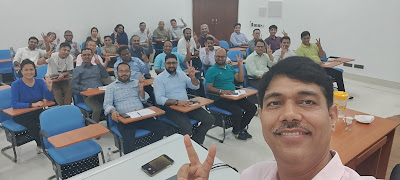
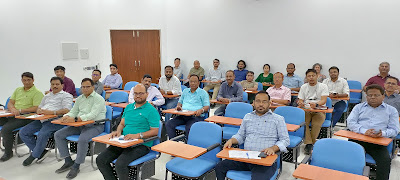
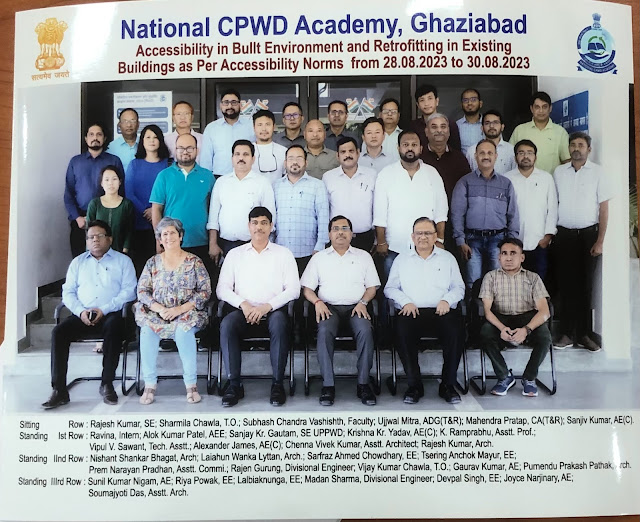

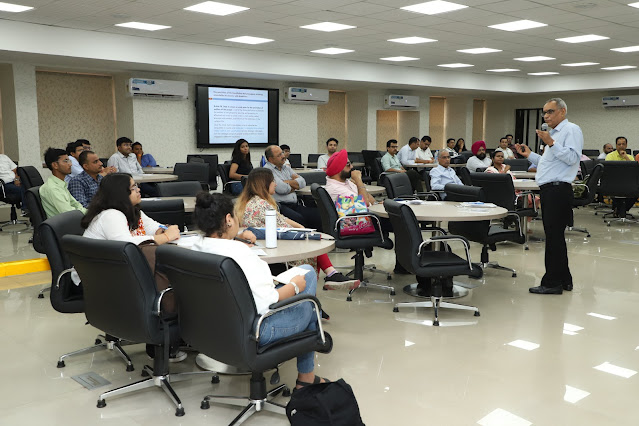


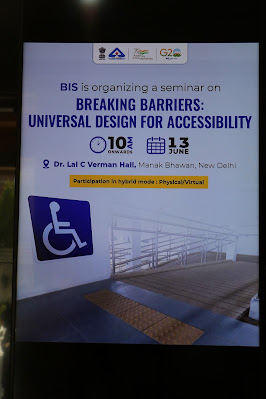




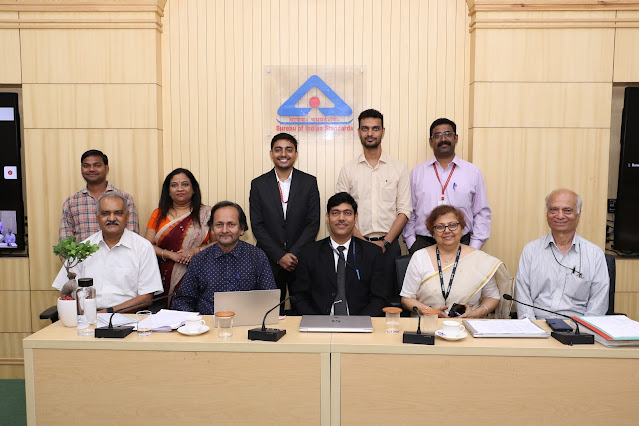
.jpeg)
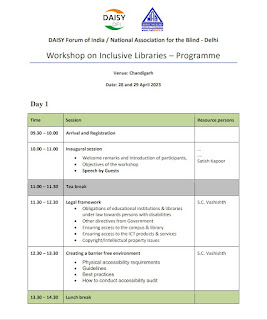
.jpeg)